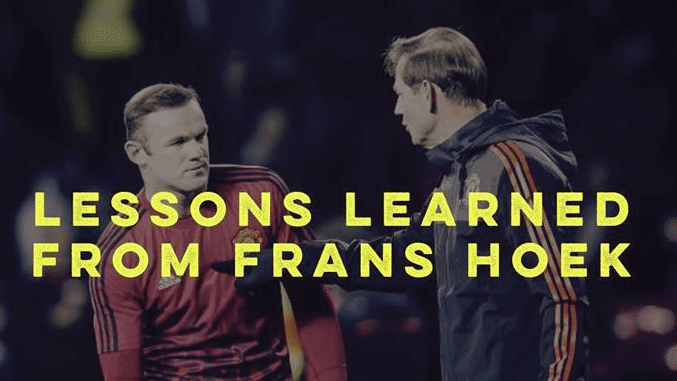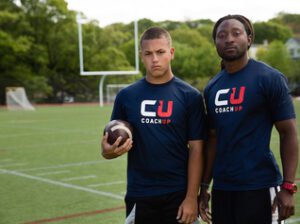I have had the pleasure of attending numerous seminars by a coach with an illustrious career. Frans Hoek has been an assistant of Louis Van Gaal at AFC Ajax, Barcelona, Bayern Munich, Manchester United and with the Netherlands National Team. As a goalkeeper coach, he’s worked with exceptional talents including Edwin van der Sar, Victor Valdes and more recently David de Gea. Having worked at the highest club level and coaching at the 2014 World Cup where Netherlands demolished Spain 5-1, it’s fair to call Hoek an expert in his field.
All of Hoek’s speaking engagements have a common takeaway—everyone needs to be active in their own learning process. Whether you are a player or coach, set a high standard for yourself and always push yourself to meet it.
The Process
Hoek’s states that it’s all about the process. As a team, you should be practicing what you see in the game.
With that mentality, look at the game and identify a starting situation to train. Once you’ve identified your starting situation, you must dive deeper, evaluating these five questions:
- What?
- Who?
- When?
- Where?
- Which?
Once you’ve answered each of these questions, you can plan and set a goal for your session. After your session is complete, it’s crucial to evaluate and reflect on the session.
Remember, the basis is always the game.
Education of the Players
The work with the players to develop game-like scenarios is done in training.
We as coaches must create game-like learning experiences that build towards the 11v11 game. Through game simulations, we can help players develop understandings that go beyond the practice field.
The game environment and mentality is vital. Every aspect of training – technical execution, decision making, scoring strategy, etc. — must all be done as if you were playing in an important game.
It can be tempting to ease up because it’s a practice, but be sure to discourage sloppy passes, holding on to the ball for too long and other actions that could be detrimental if it was an actual game—set your, and your players’, standards high.
Coach Responsibility
We all understand that our role as a coach extends far beyond that of simply running training sessions. Frans Hoek gave a detailed breakdown of how a coach’s approach should look. Think of your training sessions and preparation—are you meeting these requirements?
- Have a clear vision.
- Translate that vision to way of playing.
- Profile your players.
- Scout players both in your system and those outside it.
- Create a season plan.
- Have a personal development plan.
- Set up a periodization plan.
- Have practices based upon your way of playing, your opponents way of playing and ones that prepare for games.
- Coach games.
- Evaluate your team.
This quote from Coach Hoek resonates with me: “You have to learn not to show emotion. It clouds your judgment and does not allow you to see the game clearly—watch the game clean.”
My personal biggest takeaway from Coach Hoek is his attention to detail and his constant pursuit of perfection. When he was coaching at Manchester United, they would film and analyze not just the games, but the training sessions. That may sound extreme to you or not appropriate for you team, but it’s a good challenge to always strive to try to find ways to be the best coach/team/club/company that you can be.
If you ever get the chance to attend a seminar of his, I highly recommend it.
How useful was this post?
Click on a star to rate it!
Average rating 0 / 5. Vote count: 0
No votes so far! Be the first to rate this post.



